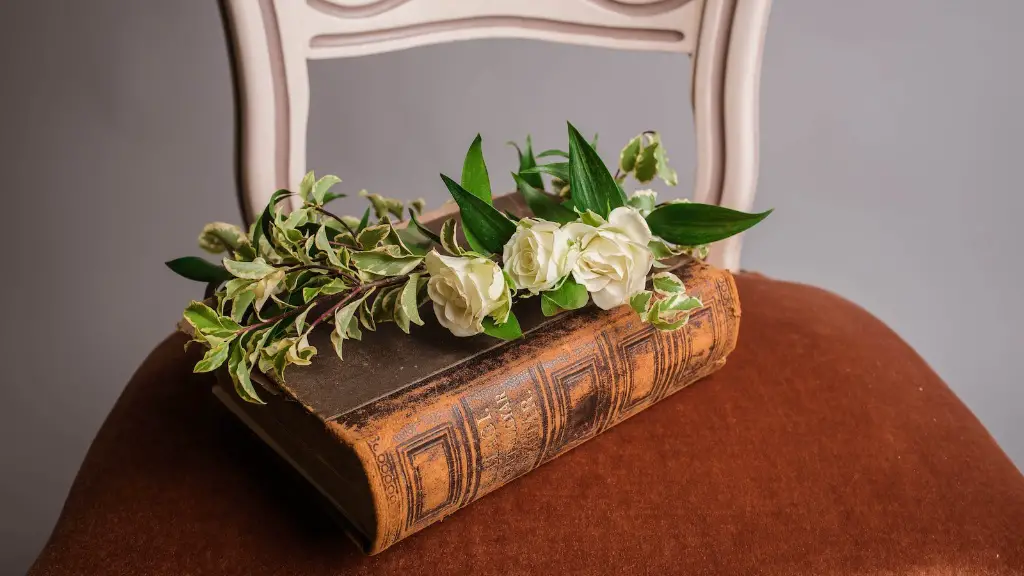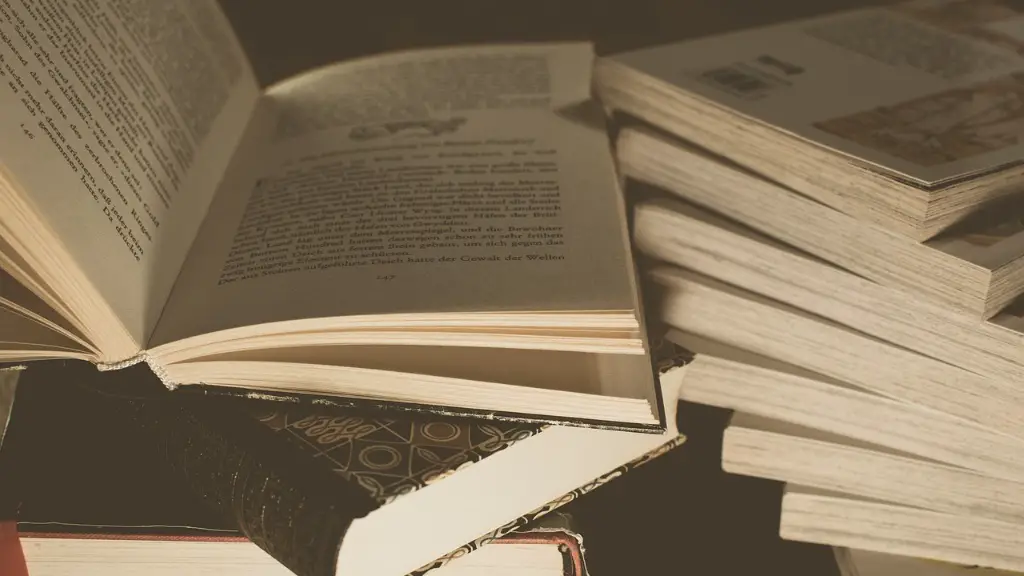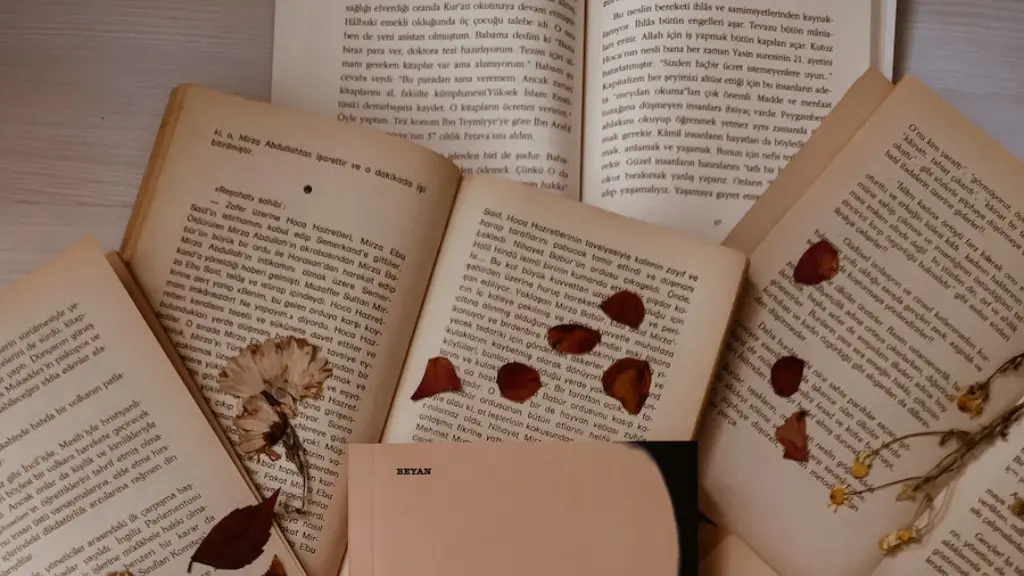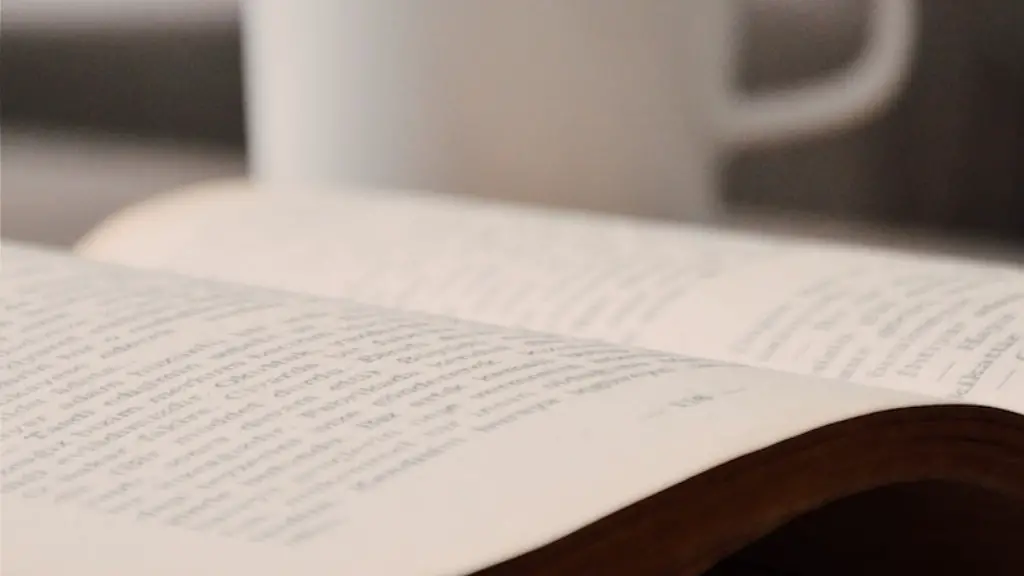Why is it important to learn about poetry?
Poetry is the expression of ideas and thoughts in a manner that is structured and aesthetic. It is a powerful way to explore language, emotions, and create meaning. By learning about poetry, readers gain insight into the language and emotions of a text, as well as the ideas and values that are represented. Furthermore, it can provide a platform for expression through creative writing.
Although it is often looked at as simple rhymes and verses, poetry is more than just a tool for learners to gain an understanding of words. Poetry teaches about both the physical and abstract components of language. For example, understanding a poem can help learners comprehend context, imagery, sound, metaphor, and form. These components are integral to language and contribute to its beauty.
In addition to language and imagery, poetry also allows learners to comprehend and process complex emotions. Through different poetic devices, readers can explore themes such as love, heartbreak, sadness and joy. By studying poetry, learners can gain a better understanding of how these emotions are expressed through language.
Furthermore, poetry is a great tool for developing creativity, which is an important part of learning and critical thinking. Many poems tell stories and offer perspectives that are not often found in more traditional narrative structures. By exploring different poetic structures, learners can foster their own creativity in the act of writing their own poems.
Finally, learning about poetry can also be a way for learners to connect to different cultures and times. Through poetry, we can gain insight into the cultural and historical context of a poem, which can be an important portal for understanding the values, beliefs and customs of different societies. By exploring these different perspectives, learners can gain a better understanding of the world around them and the many cultures that make it up.
The Impact of Poetry on Creative Writing
Studying poetry can be a great way to improve creative writing because it encourages learners to think outside the box when forming their own stories and poetry. Poetry is often likened to musical composition because it requires creativity in order to effectively convey emotion and meaning. By understanding different poetic devices, learners can begin to challenge themselves and take their writing to the next level.
Furthermore, poetry teaches learners to be mindful of their writing style and language. By understanding the intricate details that make poetry powerful, learners can begin to think about the impact their own words can have. This can be especially beneficial for younger learners who are still developing basic literacy skills and can lead to improved writing ability.
When studying poetry, learners can also think about the choices they make in creating their own pieces. This can help them to carefully consider their word choice, structure and form when writing. It can also encourage them to experiment and explore different styles of writing which will allow them to find the ones that they like best.
Finally, poetry can be a great way to explore themes and ideas. Through learning about different poems, learners can become familiar with topics such as love, loss and hope which can be great tools for their own creative writing.
Poetry and Critical Thinking
Studying poetry can also be a great way to enhance critical thinking skills. When reading a poem, learners must make decisions about how to interpret the words and how it impacts the meaning. They must identify elements such as context and symbolism in order to gain a better understanding of the poem and its message.
In addition to interpreting the text, learners must also think about the way the poem was constructed. This means looking at the different components such as form, sound and structure to determine how they contributed to the meaning of the poem. Through this process, learners can gain a better understanding of the ways in which poets use language to convey meaning.
Finally, poetry can also be an effective tool for exploring societal values and beliefs. By looking at poetic works, learners can identify different opinions and come up with their own ideas about what the poem represents. This is an important part of critical thinking, as it allows learners to gain insight into different perspectives and to form their own opinions.
The Benefits of Poetry for Learners
The study of poetry can be a great way for learners to gain a better understanding of language and creative expression. By exploring different poetic texts, learners can learn about both the physical and abstract aspects of language, as well as the emotions conveyed through different poetic devices.
Furthermore, it can provide a platform for learners to improve their own creative writing skills. By exploring different poetic forms and devices, they can become more aware of the impact their words have when crafting their own stories and poems.
Finally, studying poetry is a great way for learners to enhance their critical thinking skills. Through looking at different poetic works, they can gain insight into the ideas and values that different societies hold and form their own opinions about the topics.
The History of Poetry
The study of poetry is not just about understanding the language and meaning of different texts, it also involves learning about its history and evolution. Poetic forms have been used for thousands of years to express ideas, emotions and values. Through learning about the different schools of thought in poetry, learners can gain an understanding of the different approaches and styles that have been used over time.
Intriguingly, different regions of the world have produced different poetic forms. For example, Chinese poetry is known for its use of symbolism and imagery while Japanese poetry focuses on the use of waka, which are short poems that are meant to evoke emotion. By exploring these different forms, learners can gain an appreciation of poetry from different cultures.
Furthermore, learning about the history of poetry provides learners with insight into ancient history. Ancient poetic texts often contain depictions of wars, political struggles and the stories of gods and heroes. This makes them invaluable resources for those looking to explore the history of a certain region or culture.
Finally, learning about the history of poetry can also be an important way for learners to understand the development of language. As language has evolved, so too has the way it is used in poetry, from the use of alliteration to the adoption of more modern techniques such as rap and spoken word.
The Role of Poetry in Modern Education
Many people think of poetry as something that is not necessary in modern education because it is perceived to be something that is out of date. However, poetry can be a valuable tool in today’s classrooms. While it is true that many of the traditional poetic forms are no longer used in daily life, they can still be used to teach invaluable skills such as language, critical thinking, and creativity.
In addition to its educational value, poetry can also be a great way to engage learners. By exploring different forms of poetry, learners can gain a better understanding of the world around them and the many cultures that make it up. This can provide learners with the opportunity to be creative and express themselves through the form of poetry.
Finally, poets can inspire students by providing them with a platform to tell their stories. Through poetry, students can learn to express their thoughts, feelings and ideas in a creative and powerful way.





